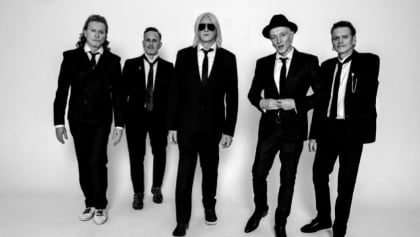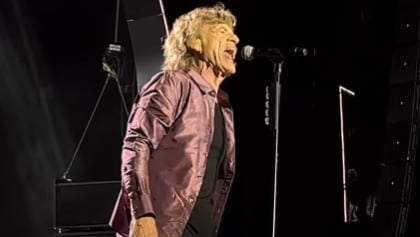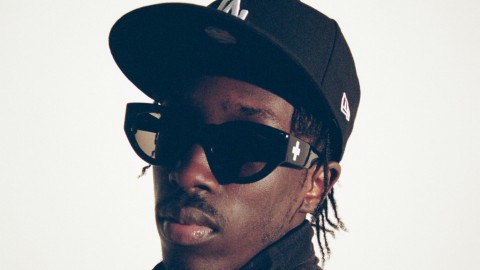
As a combination of a lot of different genres, Soundfall brings everything together under an umbrella of a musical celebration. This is an adventure that pulls from rhythm titles, role-playing games, top-down twin-stick shooters, and more. It’s moreish, pulling you in one song at a time, and leaving you googling the artists involved to see if the rest of their catalog is as good as the song you just played through.
In Soundfall you will be shooting your way through a top-down level while a licensed (or sometimes original composition) song plays. You are wandering through the vibrant, radiant world of Symphonia firing your weapon in time to the beat, defeating the evil oncoming darkness named Discord, and freeing the music to go out and enrich the wider world.

The closest frame of reference I can think of is to Crypt of the Necrodancer, a game that asks you to move (and thus attack) to the beat, but there are differences between that and Soundfall which make it feel like one of the most original titles I’ve played in quite a long while.
Punishment for shooting off-beat is simple: your weapon fires less proficiently. That’s not to say you couldn’t brute force your way through constantly being off-beat (and indeed, there’s a calibration tool for audio and video should you feel something is wrong there), but you will also have to “reload” your weapon if you continuously miss your timing.
The PlayStation 5 DualSense controller pulses with the beat to help you out, but that’s just one of a few different ways you can stay in time with the music. There’s a metronome option that can be set to be always on or off, or even to just switch on if you’re missing your cues regularly. Your avatar also has a pulsating shape that moves in time to the beat, but honestly, the music is so catchy that it will get you in time all by itself.

I actually found myself nodding along to almost every song within the Soundfall soundtrack. From full-on EDM or punk rock, and classical orchestral tunes with thumping beats behind them, it’s banger after banger, and genuinely drops you into a similar state of flow akin to something you’d find within Tetris Effect or Rez.
Crucially, every song creates a procedurally generated dungeon for you to fight through, meaning it feels different every time you pick up your instrument and start the battle. If you’re playing a two-minute song, the dungeon will reshape accordingly, and this is key because you earn rewards and loot based on performance. One ever-present rating is whether you manage to complete a dungeon before the song loops, and often it’ll feel like a personal sleight if you fail to do this. The last few panic-stricken seconds before the song restarts is a genuine thrill when you know you’re going to make it to the end by the skin of your teeth.
All of this is happening as bursts of colour and sound fire from every angle. The environments are alive to the music and will wiggle and dance along as you pass by. Even the enemies seem to be grooving to the music as they approach you. When all is said and done this is still a twin-stick shooter, so despite the luscious visuals you’ll have to keep your cool and defeat the evil creatures while retaining the beat and not taking damage.

The loot you’ll find in treasure chests uses the tried and trusted approach of colour coding, with higher level items having buffs that might improve your proficiency with health draining weapons, or fire attacks, or ice that slows the enemies; you get the picture. There’s a gang of five characters to unlock, but they share loot and level so the only change between them is visual and, of course, their special ability.
Early on in Soundfall, before anyone else is unlocked, playing as Melody you’ll find a sound sword. This quickly changes the game from being “just” a twin-stick shooter to something else entirely. Now you’re switching between ranged combat and melee, with sword attack combos ending on a stronger blow, all the while building a meter for your ultimate attack. Each character has their own special musical instrument weapon, and ultimate ability that works in tandem with the idea.
There’s loot to find off the beaten path, and even the dash ability requires you to time it to the beat, or it will fail. It’s remarkable how good it feels when you nail four or five dash button presses in a row to smoothly glide along a teleportation rail just to find a new keyboard that fires like a shotgun. It’s this simplicity that makes it so addictive and easy to pick up, only for an hour to fly by without even noticing.

The difficulty progresses with each new area you unlock. Each environment is themed in a way similar to platform games: there’s a forest; a beach area; a volcanic location, and so on. There are bonus levels within each world, and the higher difficulty you choose to play on, the better the loot you’ll unlock. An in-game shop offers the chance to spend your earned gold, but honestly, I found my best gear just by playing.
If there is a criticism, it’s that the enemies on offer are slightly limited at times. For such a creative endeavour, hitting a higher difficulty and still seeing the same grunt enemies is a tiny bit disappointing. That said, while Soundfall starts out easy against slow enemies that amble toward you almost begging to be taken out, it does eventually ramp up to something akin to a bullet-hell shooter, though often only towards the end of an area.

There’s also a slight disconnect between the in-game visuals, the cut-scenes, and the JRPG style narrative overlays between missions. They’re well made, appear like an 80s-style cartoon, while the rest of the game is modern-looking.
But these are minor complaints, because for a game that marries so many different ideas together so successfully, includes full co-op for up to four players and, if you’re on PC, allows you to import your own music to create an endless cacophony of sound and vision, it’s an absolute triumph. With a good pair of headphones Soundfall is truly a joyous multi-sensory experience celebrating music that simply must not be missed.
Soundfall is out now for PC, PlayStation 4, PlayStation 5, Xbox One, and Xbox Series S|X. We reviewed it on PlayStation 5.
The Verdict
One of the most unique titles in a long while, Soundfall is successful at marrying together multiple genres while also bringing a sparkling, universally pleasant soundtrack that must be played and listened to. With plenty of reason to replay stages and songs, this really is one of the nicest surprises of the year in games so far.
Pros
- Moreish rhythm-action
- Brilliant audio and visuals
- Plenty of reasons to replay
Cons
- Slight disconnect between visual styles
- Long load times
The post ‘Soundfall’ review: a musical celebration appeared first on NME.










